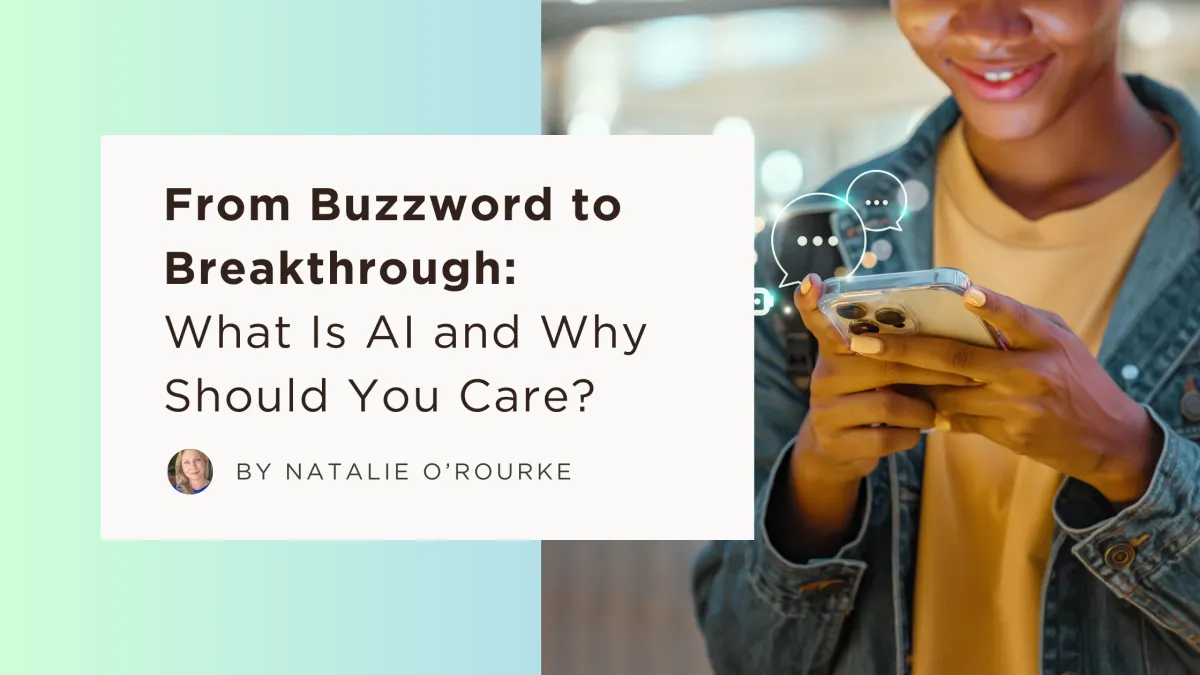UX AI Blog

From Buzzword to Breakthrough: What Is AI and Why Should You Care?
Not long ago, the phrase “artificial intelligence” (AI) belonged in sci-fi movies. Today, it’s quietly transforming how we work, learn, and live — whether we realize it or not.
You don’t have to be a coder or data scientist to understand AI. In fact, if you’re a professional in any field, embracing AI is now a career advantage. Let’s take a look why.
What Is AI, Really?
In simple terms, AI is the science of building systems that can mimic human thinking or decision-making.
That can mean:
Understanding text or speech (like Siri or Alexa)
Recognizing patterns (like fraud detection in banking)
Making recommendations (like Netflix suggesting your next binge)
There are many types of AI, but most fall under “narrow AI” — systems trained to do one thing well.
You’re Already Using AI (Even If You Don’t Know It)
AI isn’t something far off — it’s in your pocket, your inbox, and your workflow. Some examples:
Email spam filters (AI decides what’s junk)
Google autocomplete (predicts what you’ll type next)
E-commerce suggestions (“People who bought this also bought…”)
Bank alerts (flagging unusual spending patterns)
These are all basic AI systems. They don’t “think,” but they process large amounts of data and apply simple rules to act fast and accurately.
Why Professionals Should Pay Attention
Whether you’re in marketing, law, finance, healthcare, education, or HR — AI is already showing up in your industry.
Here’s why it matters:
Efficiency
AI can take on repetitive, low-value tasks — freeing you for higher-level work.Decision Support
AI helps you analyze more data, faster — so you make better choices with less guesswork.Professional Growth
Understanding AI tools makes you more valuable and more adaptable in a fast-changing workplace.Career Security
You don’t need to be replaced by AI — but you could be outpaced by someone who knows how to use it.
Your First Step: Awareness
Start small. Ask yourself:
What tools do I use every day that might involve AI?
Where do I spend time on repetitive tasks?
Could any of these be improved by automation or assistance?
Next, keep learning — AI isn’t about knowing everything. It’s about being curious, open, and willing to evolve with your tools.
Conclusion
We don’t need to fear AI. We just need to understand where it fits in our world and be willing to evolve with it.
Because in the future of work, those who know how to use AI… will lead.


